8 Ways to Reduce Gas and Farting
Back in my early 20’s, when I struggled with irritable bowel syndrome I had the worst smelling gas. It was super embarrassing, but I knew there was a problem with my body, I just didn’t exactly know how to fix it back then. I was eating what I thought was a healthy diet, but unfortunately, my body had been worn down from years of using ibuprofen to suppress pain from sports and headaches, high stress, eating too quickly and years of poor nutrition.
Many of us have experienced the embarrassment and discomfort that comes from out of control flatulence. Some may not fess up to admitting it but farting is a daily occurrence that is normal in healthy people. You yourself may not even notice but the average person farts an estimated minimum of 14 times a day (1). Some people who pass gas resulting in foul odors more often than others may struggle from a variety of culprits responsible for their digestive disturbance.
Determining the cause of your excessive gas may be detectable by recognizing the odor of your farts and observing other digestive symptoms you may be experiencing. Eating quality nutrition from whole foods high in fiber can produce normal flatulence. However, other digestive discomfort that accompanies gas may be a sign of a serious problem. Read on to learn if your gas and farting is a result of gut dysfunction and how you can reduce these embarrassing symptoms.
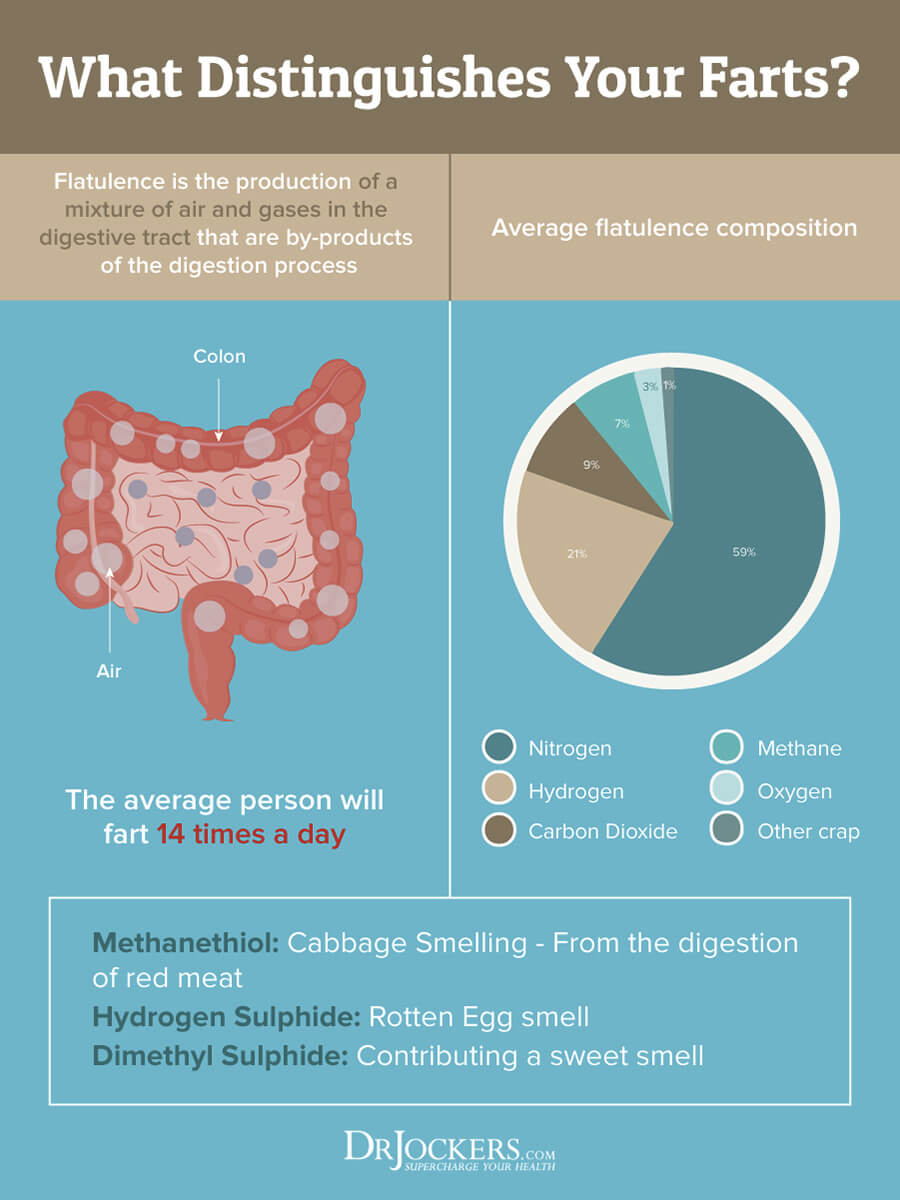
What Distinguishes Your Farts?
Nitrogen is the primary compound that is found in 20% to 90% of gas that generates farting. The second most prevalent culprit is carbon dioxide. Carbon dioxide contributes between 10% and 30% of the gas by volume followed up with an estimated 10% of each gas including hydrogen (possibly more), methane and oxygen. (18)
The concentration of gases includes a range because every individual’s lifestyle habits will affect the gases they produce. For instance, the following factors contribute to the percentage of gas any individual will generate in any single day:
- Dietary habits and quality of foods consumed
- Effect of chemical reactions which occur in the microbiome of the gut during digestion
- The quantity of air swallowed throughout the day
Which gases are present in the body will contribute to the smell of an individual’s farts. Many of you who do not believe you fart at least 14 times a day, likely experience the odorless farts caused by 99% of the gases produced in your intestines. Those less fortunate experience foul smelling flatulence resulting from the 1% of gas with all too common aromas.
A combination of specific sulfur-related compounds produced in the intestines contribute to the odor of your passing gas. These sulfur containing compounds is characteristic of cruciferous vegetables. These three compounds include: (2, 3, 17)
- Methanethiol: Methanethiol is one of the worst contributors to smelly farts. This stench is comparable to decomposing vegetables and is naturally released from the digestion of blood in red meats. This cabbage scented compound is naturally present in blood and the human brain.
- Hydrogen Sulphide: This gas is characteristic of the well-known “rotten eggs” smell. Hydrogen sulphide is naturally produced in the intestines and when present in large amounts it is in fact flammable. Hydrogen sulphide is the gas that gives sewage systems and swamps their unappealing odor.
- Dimethyl Sulphide: Contributing a sweet smell, dimethyl sulphide is perhaps the least offensive compound that makes up the smell of farts. If you have ever cooked Brussel sprouts then you are able to distinguish the chemical odor of dimethyl sulphide.
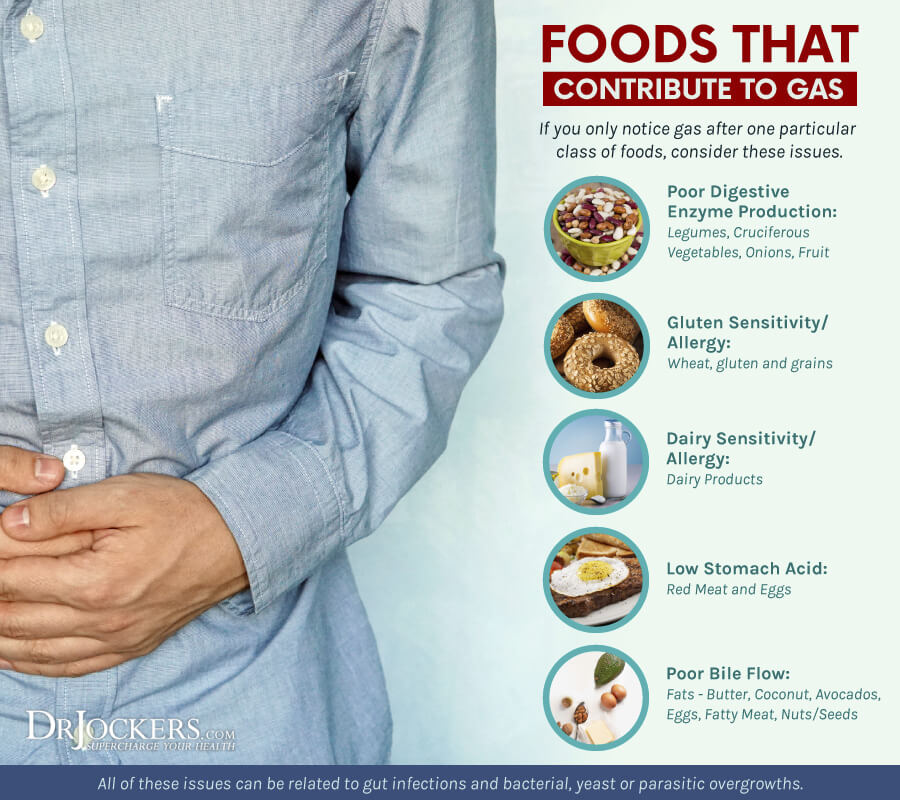
What is Causing Your Farting?
Gas accumulates in the body for a number of reasons including hormonal changes and specific foods which naturally produce gas pains. As gas passes throughout your digestive tract, it accumulates and it is eventually passed just as feces does from the colon. Disturbances can occur differently in person to person causing indigestion, bloating, excessive gas build up and pain in the abdomen. When these symptoms occur, your body is signaling to you that there is a problem in you digestive system hindering the escape of gas.
Typically bloating is one of the most common symptoms associated with gas retention in the gut. Excessive gas translates into a protruding lower abdomen, discomfort and symptoms like farting. Two factors contribute to this abdominal distension and include the distribution of gas within the gut as well intestinal motor activity. When digestive muscles are relaxed, the volume of gas is better tolerated.
Food irritants from sensitivities and allergies are only one of many triggers that can irritate the digestive organs and create disturbances. Abnormal bacterial growth and fermentation within the gut can leave you feeling generally unwell. The following five reasons may be causing you stomach bloating and farting:
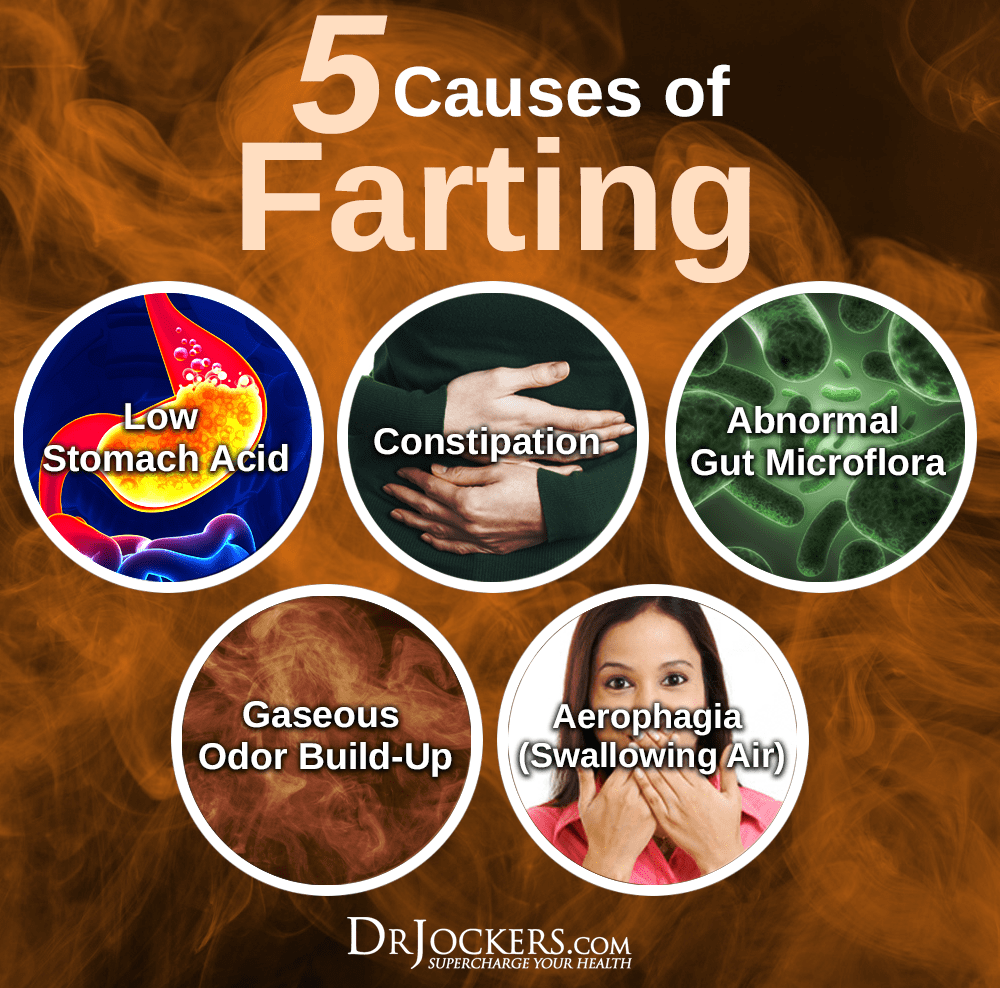
5 Causes of Farting:
- Low Stomach Acid: This condition known as hypochlorhydria can inhibit digestive motility and trigger digestive disturbances that increase bacterial fermentation. Under conditions of low stomach acid, food particles that remain undigested are metabolized by certain bacteria that can contribute to bloating and farting. (5)
- Constipation: The longer the period of time food sits in the digestive system, the increased risk you will have of bacterial fermentation and the overproduction of intestinal gas.
- Abnormal Gut Microflora: Gases produced are dependent on the health of the gut microbiome. The composition of both supportive and harmful bacteria residing in the digestive system is different in every individual. This microbiome composition can make us susceptible to excessive gas production.
- Gaseous Odor Build-Up: Undigested food residue that becomes trapped in the colon increases the fermentation of colon bacteria which in turn produces gas.
- Aerophagia (Swallowing Air): This involuntary habit of swallowing air builds up in the stomach only to escape as flatulence. Air is vented into the stomach following muscle changes that have allowed the intake of air and ineffective attempts of belching to rid of the air. You will later learn how eating too fast and not properly chewing your food can lead to excessive swallowing of air (4, 19).
8 Ways to Reduce Gas
Every person’s experience in dealing with gas is different because everybody is unique in how they manage bacteria and the buildup of sulfur compounds. Listed below are eight mechanisms you can try to identify which problems are triggering your digestive discomfort.
Following these strategies will help you reduce gas and improve your digestive health. Applying all of these strategies will give you a plan to overcome gas and bloating naturally!
1. Eat Slowly and Intentionally
As previously mentioned, eating quickly without properly chewing your foods can irritate the digestive system and result in gas. This is why the saying “chew your liquids, drink your solids” is so popular. Eating mindfully not only eases you into a relaxed state so that you can ensure healthy digestion, but this way of eating also:
- Limits the intake of unintentional air;
- Increases the beginning stages of digestion from salivary enzyme secretions needed to metabolize food;
- Breaks down the food components through the mechanics of chewing so that there is a better chance that food residue will pass smoothly and this will reduce gas.

2. Drink More Water Between Meals:
Ensure the proper movement of food through the digestive tract by hydrating well in between meals with pure water. Hydration is key to removing waste from the body because it lubricates fiber causing it to swell preventing it from becoming stagnant along the digestive tract. By moving things through your system, you minimize fermentation and reduce gas formation.
Although drinking plenty of water throughout the day is essential, try holding off drinking it during a meal. In combination with eating, water will dilute the digestive juices secreted to metabolize food and can contribute to your problems.
3. Use an Elimination Diet
An elimination diet can help you to gain insight into what foods might be causing your gassy symptoms. Follow these simple five steps to practice an elimination diet here. This process will have you removing common food culprits that trigger gas from your diet followed by their reintroduction to detect for symptoms.
Some of the worst offenders you may wish to begin eliminating from your diet to reduce gas include: (13, 14, 15, 16)
- FODMAPS (fermentable oligosaccharides, disaccharides, monosaccharides and polyols) such as garlic, legumes, wheat and onions
- Sulfur-containing vegetables like kale, Brussels sprouts and broccoli
- Beans
- Dairy
- High fiber starchy foods like potatoes and corn
- High fat, artificial and processed foods
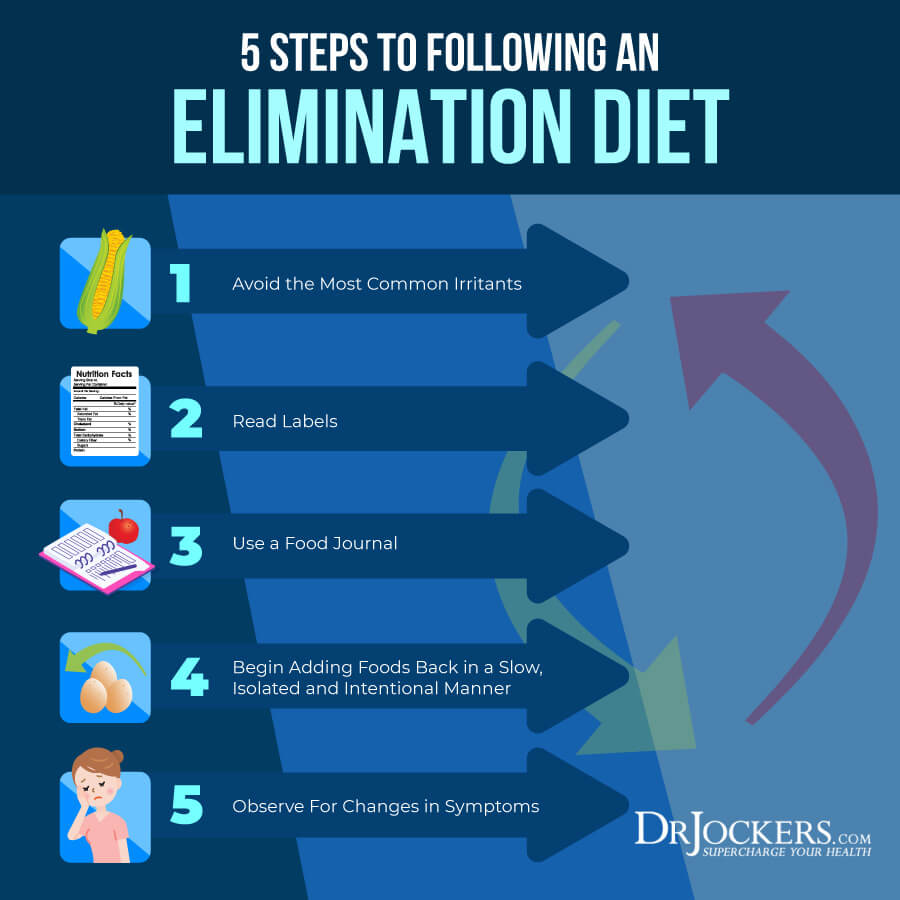
4. Support Your Stomach Acid:
Stomach acid is essential throughout various stages of digestion. Stomach acid is responsible for: (7, 8)
- Sterilizing food
- Activating digestive enzymes
- Stimulates intrinsic factor secretion
- Opens the Pyloric Sphincter
- Closes the Esophageal Sphincter
- Activates the secretion of bile
- Breaks down protein
Without proper stomach acid levels, we are unable to sterilize our food, kill off unwanted microbes and digest and assimilate the food effectively. This puts more stress on the entire digestive system and leads to microbial fermentation.
A natural byproduct of microbial fermentation is gas. When we are unable to metabolize sulfur effectively, we get really stink farts. This article here will provide you with valuable information on improving your stomach acid levels and help you identify if gas and farting are signs of a greater health complication. Addressing your stomach acid levels is critical to reduce gas.
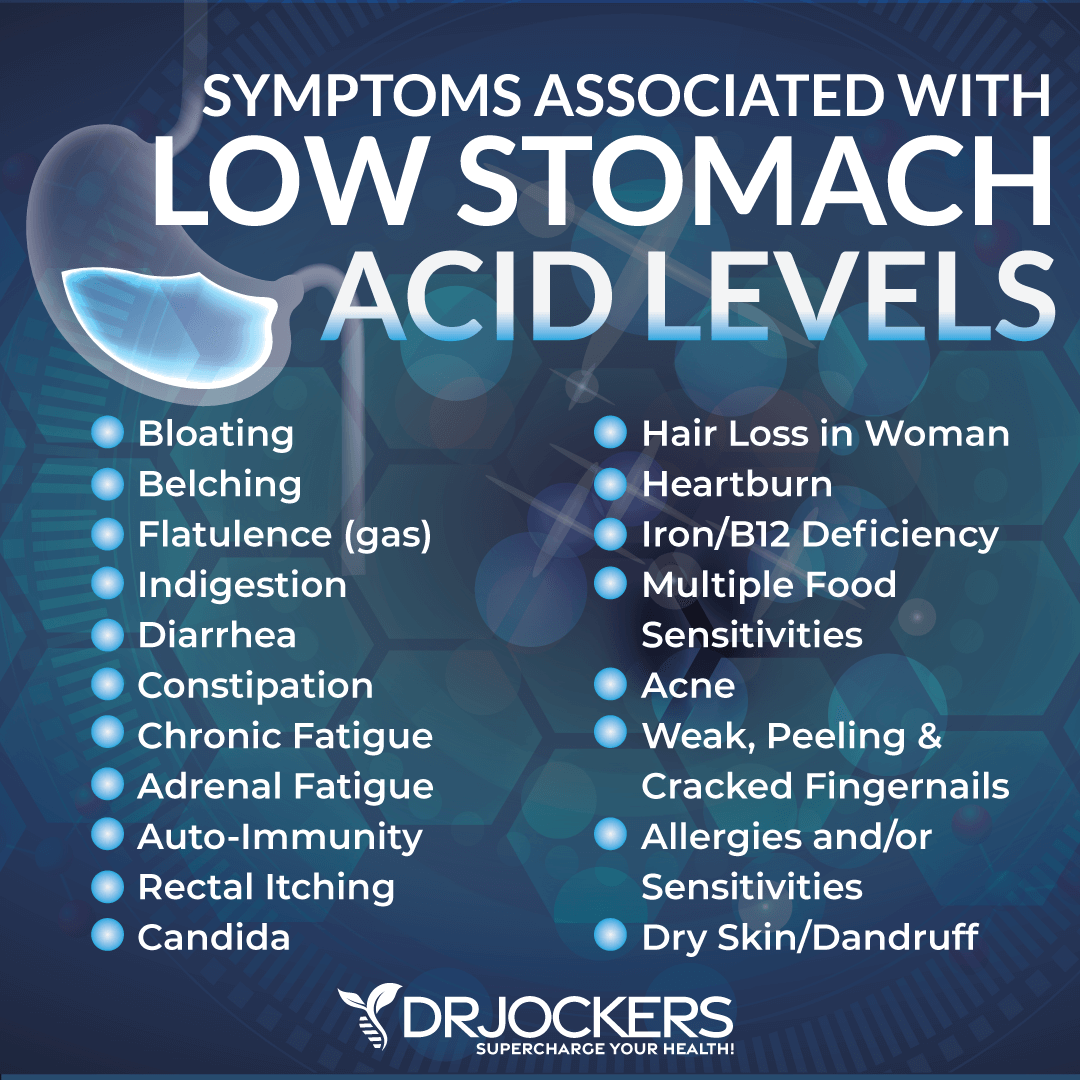
5. Use Digestive Enzymes
Digestive enzymes can help break down food components which can feed bacteria and contribute to gas. These digestive enzymes can be found in supplemental form and are present in many raw and fermented foods and beverages like apple cider vinegar.
Such enzymes will break down sugars, nucleic acids, amino acids, and fatty acids so that they are more easily assimilated into the body. For instance, gas and bloating are symptoms of a deficiency in pancreatic enzymes which can be supported with a variety of digestive enzymes such as amylase, lipase and protease (6).
Read this article here to learn which enzymes are key to improving your digestion to reduce gas and farting.
6. Use Probiotics
More than 500 diverse species of bacteria reside in the human gut and probiotics are useful in replenishing the concentration of healthy bacteria that thrive (12). Natural food sources of probiotics can be found in coconut water kefir, coconut milk kefir, kombucha, yogurt and fermented veggies like sauerkraut and kimchii.
Improving the balance of the gut microflora is critical to reducing the occupancy of harmful microbes that can lead to excessive gas accumulation. Learn more about why maintaining an optimal gut environment is key to your health in this article here. Needless to say, but adding in healthy microbes to repopulate the gut is critical to reduce gas formation.
7. Carminative Herbs
Carminative herbs have been traditionally used for centuries around the world in the practice of Ayurveda Medicine. A few carminative herbs with digestive properties include: (11)
- Fennel seed
- Cardamom
- Cinnamon
- Ginger
- Celery seed
- Cumin
- Licorice
- Caraway
- Peppermint
- Orange peel
These carminative herbs reduce flatulence by relieving intestinal pressure, support healthy gut motility and enhance nutrient absorption (9). Carminative herbs have therapeutic properties which you can gain from sipping on tea from your own blend of herbs or incorporating them into your meals. You can read about these herbs and many more here regarding how they can help you treat your digestive discomfort.
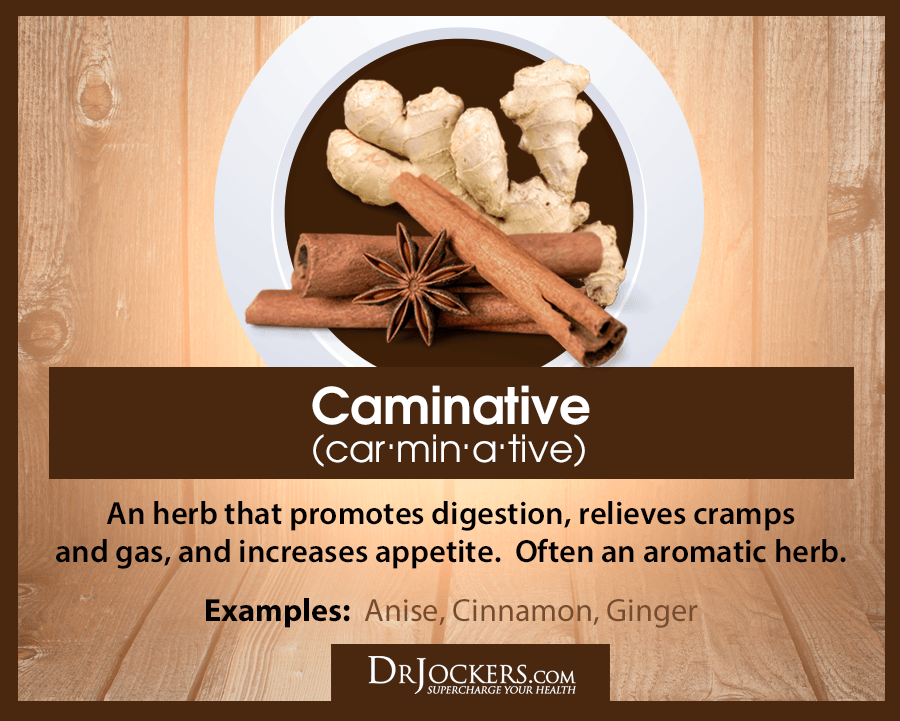
8. Magnesium Helps Improve Bowel Tone
Magnesium may be one of the most overlooked minerals you may need to improve your digestion and reduce gas and farting. The National Institutes of Health report that magnesium is essential in supporting the activity of more than 300 enzyme processes including serving as a muscle relaxant along the gastrointestinal tract (10).
Over 80% of society is deficient in magnesium, which play an important role in healthy bowel motility (20). By stimulating the muscles in the digestive system and moving fermenting food through magnesium effectively helps to reduce gas build-up.
I will put my clients on Brain Calm Magnesium which has several forms of magnesium including magnesium L-threonate which crosses the blood brain barrier and improves mental function and stress adaptation. The side benefit is that it will improve bowel motility, reducing the amount of time food stays in our intestines to ferment. By increasing the speed of transit, we reduce gas production.
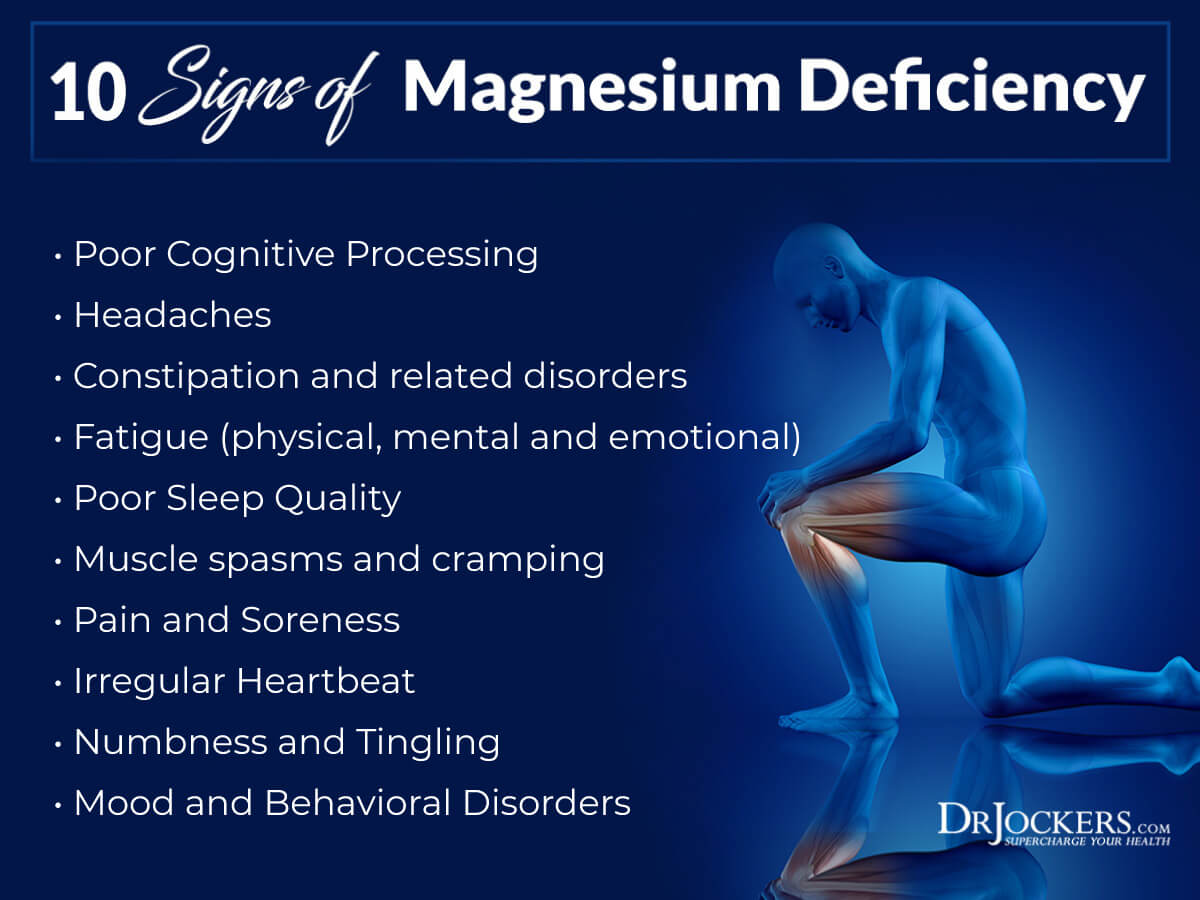
Final Thoughts
Gas and bloating are not fun to experience but are unfortunately all too common. Gut dysbiosis, or gut microbiome imbalance, is the common cause behind many chronic symptoms and health issues. Identifying gut dysbiosis and its causes is the first step to recovery and improved health.
Understanding gut dysbiosis can allow you and your healthcare practitioner to create a personalized plan and correct imbalances and underlying issues. Get tested for gut health issues and follow my tips for gas and bloating to improve your gut health, regain full-body health, and reclaim your energy, happiness, and vitality.
If you want to work with a functional health coach, I recommend this article with tips on how to find a great coach. Our website offers long-distance functional health coaching programs. For further support with your health goals, just reach out and our fantastic coaches are here to support your journey.





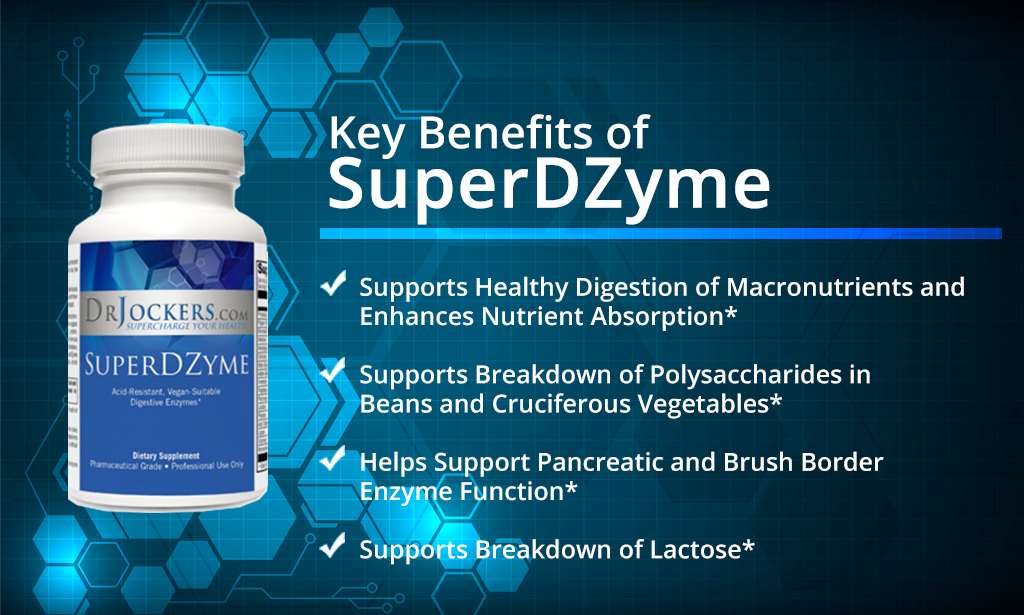




Rather i have a question that i fart to max when i sleep during the night especially as and when i change the side from left to right or vice versa …So your reply will help me understand the problem…
I am a vegetarian. I do not consume any dairy products either. My gas is HORRIBLE. Rotting garbage smelling and it’s ALL the time. I obviously eat a lot of fruit & vegetables. I don’t eat any processed foods. I am embarrassed at work because my cube smells like the garbage dump. I don’t know what to do anymore.
Hey Laura, I am sorry to hear this. Even healthy foods may be triggering this effect. This article offers detailed information: https://drjockers.com/beat-digestive-problems-low-fodmap-plan/
Hey doc. Hope you’re fine. I had pain in the abdominal section and I confirmed that it was fart. So i tried some water and… no change. After that i served myself some hot milk tea. But still the pain caught me for three hours. I couldn’t take longer, so i performed some dancing and yoga. No change at all. Please help me on this doc. Thank you